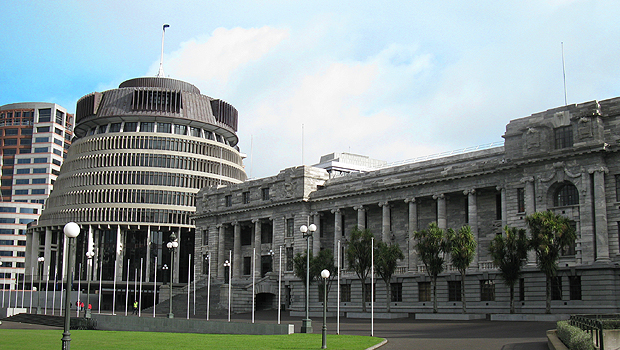Politics
New Zealand Initiative Advocates for Increasing MP Numbers

The New Zealand Initiative has proposed increasing the number of Members of Parliament (MPs) from 120 to 170, igniting a debate on the effectiveness and efficiency of the current political structure. This suggestion has drawn mixed reactions, particularly from commentators like Kerre Woodham, who express skepticism about the need for more politicians in a system that already faces challenges of accountability and public understanding.
Nick Clark, a senior fellow at the New Zealand Initiative, argues that the current MPs are overburdened, which compromises their capacity to draft quality legislation. He points out that MPs often serve on multiple committees, limiting their ability to thoroughly scrutinize proposed laws. “We have difficulty with select committees in terms of the ability for them to properly scrutinise legislation,” Clark stated. His view suggests that an increase in the number of MPs could help alleviate this strain, allowing for better representation of the constituents’ needs.
Woodham, however, disagrees with the notion that more MPs would resolve existing issues. She emphasizes that the voting public’s understanding of civics and civil society must improve before any increase in parliamentary representation is considered. “Until the New Zealand voting public has a seismic shift in the understanding of civics and civil society, we need fewer politicians, not more,” she remarked.
The call for more MPs also comes amid concerns about the disconnect between politicians and the electorate. According to Dr. James Kierstead, another senior fellow at the New Zealand Initiative, there have been instances where the government has enacted policies against the wishes of the majority. For example, the controversial Three Waters legislation faced significant opposition from the public, yet it was passed despite various polls indicating that a majority of New Zealanders opposed it.
Kierstead’s findings highlight a broader issue many democracies face: a gap between public sentiment and political action. He suggests that increasing citizen input could bridge this divide. Nonetheless, Woodham counters this idea, asserting that a more educated voting population is essential before implementing such changes. “We are drawn from an imperfect pool of people,” she said, noting that many voters do not fully engage with policies or understand the implications of their choices.
Woodham’s perspective reflects a growing concern about the quality of political discourse and accountability in New Zealand. She asserts that while some MPs may take their responsibilities seriously, there are notable instances of underperformance. “If every MP who was being paid by you and me was pulling their weight, you could argue they are overworked,” she explained. Yet, she believes that increasing the number of MPs, particularly list MPs, would not address the core issues of accountability and public engagement.
In conclusion, the debate over the potential increase in MPs in New Zealand underscores a critical examination of the current political landscape. With competing views from respected figures like Clark and Woodham, it remains to be seen whether this proposal will gain traction or if the focus will shift toward enhancing the public’s understanding of governance and civic responsibility. Until a substantial shift in public engagement occurs, the question of increasing parliamentary representation may remain unresolved.
-

 World3 months ago
World3 months agoTest Your Knowledge: Take the Herald’s Afternoon Quiz Today
-

 Sports3 months ago
Sports3 months agoPM Faces Backlash from Fans During Netball Trophy Ceremony
-

 Lifestyle3 months ago
Lifestyle3 months agoDunedin Designers Win Top Award at Hokonui Fashion Event
-

 Sports3 months ago
Sports3 months agoLiam Lawson Launches New Era for Racing Bulls with Strong Start
-

 Lifestyle3 months ago
Lifestyle3 months agoDisney Fan Reveals Dress Code Tips for Park Visitors
-

 World3 months ago
World3 months agoCoalition Forms to Preserve Māori Wards in Hawke’s Bay
-

 Health3 months ago
Health3 months agoWalking Faster Offers Major Health Benefits for Older Adults
-

 Politics3 months ago
Politics3 months agoScots Rally with Humor and Music to Protest Trump’s Visit
-

 Top Stories3 months ago
Top Stories3 months agoUK and India Finalize Trade Deal to Boost Economic Ties
-

 World3 months ago
World3 months agoHuntly Begins Water Pipe Flushing to Resolve Brown Water Issue
-

 Entertainment3 months ago
Entertainment3 months agoExperience the Excitement of ‘Chief of War’ in Oʻahu
-

 Science3 months ago
Science3 months agoNew Interactive Map Reveals Wairarapa Valley’s Geological Secrets









